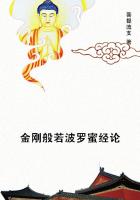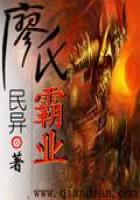These he represents as being seven: those of resemblance, identity, space and time, quantity, degree, contrariety, cause and effect.This is a very good enumeration of the relations perceivable by man: it is certainly very much superior to that of many later metaphysicians, British and Continental." These relations may be divided into two classes, into such as depend entirely on the ideas which we compare together, and such as may be changed without any change in the ideas." In the first class he places resemblance, contrariety, degree, proportion.These depend solely on our ideas.These only can be the objects of knowledge and certainty, but they can never go beyond our ideas, which can never go beyond our impressions.The other four do not depend on our ideas, and might seem to carry us beyond them; but this he shows {140}
is an illusion.In identity, and time and space, we can never ,,go beyond what is immediately present to the senses," and thus can never discover the real existence or the relations of objects.And so "`tis only causation which produces such a connection as to give us assurance, from the existence or action of one object, that 'twas followed or preceded by any other existence or action." He devotes the whole energy of his intellect to the task of showing that we know nothing of the nature of the relation between cause and effect; that we know their conjunction within our experience, but not their connection.
In discussing this question, and kindred ones, he finds it necessary to explain the nature of belief." The belief of the existence of an object joins no new ideas to those which compose the idea of the object." What then is the difference between belief and incredulity? It consists solely in the liveliness of the former." We must not be contented with saying that the vividness of the idea produces the belief, we must maintain that they are individually the same." " The belief or assent which always attends the memory and senses is nothing but the vivacity of those perceptions they represent, and this alone distinguishes them from imagination." The theory is surely palpably false here, for our imaginations, in which there is no faith, are often livelier than our memories, in which there is belief.But, by this theory, he would account for all our beliefs.He would establish it as a general maxim in the science of human nature, that when any impression becomes present to us, it not only transports the mind to such ideas as are related to it, but likewise communicates to them a share of its force and vivacity." A present impression being vivid, conveys its vividness to all the ideas which are associated with it by such general laws as those of resemblance, contiguity, and causation." " A person that has lost a leg or an arm by amputation, endeavors, for a long time afterwards, to serve himself with them.After the death of any one, 'tis a common remark of the whole family, but especially the servants, that they can scarce believe him to be dead, but still imagine him to be in his chamber, or in any other place where they were accustomed to find him." The explanation may seem a very ingenious, but it is a very feeble one.We may {141} believe that we saw a particular person yesterday, though we have no lively impression or idea retarding him; and we do not believe in the existence of Achilles, though the reading of Homer has given us a vivid conception of him.
But this theory is employed to give an explanation of our {142} belief in the relation of cause and effect.The one having always been with the other in our experience, we are led by habit, and proceeding on the principle of association, when we find the one to look for the other, and thus, too, the effect being present, that is an impression, gives its vividness to the cause as an associating idea.
"The idea of cause and effect is derived from experience, which, presenting us with certain objects constantly conjoined with each other, produces such a habit of surveying them in that relation, that we cannot, with out a sensible violence, survey them in any other." This is his explanation of what is implied in efficacy, agency, power, force, energy, connection, productive quality.The essence of necessity is " the propensity which custom produces to pass from an object to the idea of its usual attendant." "When any object is presented to it, it immediately conveys to the mind a lively idea of that object which is usually found to attend it, and this determination forms the necessary connection of these objects." His definition of cause is "an object precedent and contiguous to another, and so united with it that the idea of the one determines the mind to form the idea of the other, and the impression of the one to form a more lively idea of the other."Hume's doctrine is founded on his favorite principle, "that all our ideas are copied from our impressions but the necessary connection of cause and effect cannot be in the impression, for " when I cast my eye on the known qualities of objects, I immediately discover that the relation of cause and effect depends not the least on them." Not being in the impression, it cannot be found in the idea.Now it is here, I apprehend, that Hume is to be met.I have disputed his theory that the mind begins with mere impressions; it commences with the perception or knowledge of objects within itself, and without itself.Now, in its primitive perception of objects, it knows them as having power; it knows self as a power, and it knows the not-self as a power, -- as a power in resisting and impressing the self.Here is the <impression>, if any one will call it so (I call it knowledge), that gives rise to the idea which may be separated in thought by abstraction, and put in the form of-- a maxim by generalization.

